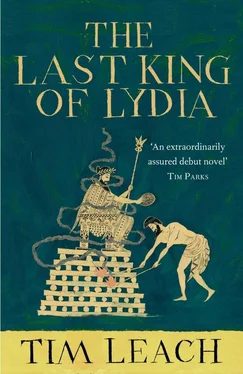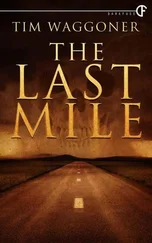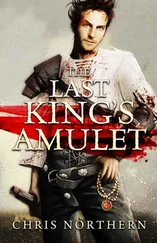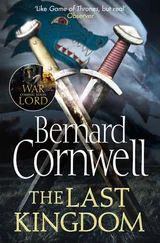Tim Leach - The Last King of Lydia
Здесь есть возможность читать онлайн «Tim Leach - The Last King of Lydia» весь текст электронной книги совершенно бесплатно (целиком полную версию без сокращений). В некоторых случаях можно слушать аудио, скачать через торрент в формате fb2 и присутствует краткое содержание. Год выпуска: 2013, ISBN: 2013, Издательство: Atlantic Books Ltd, Жанр: Исторические приключения, на английском языке. Описание произведения, (предисловие) а так же отзывы посетителей доступны на портале библиотеки ЛибКат.
- Название:The Last King of Lydia
- Автор:
- Издательство:Atlantic Books Ltd
- Жанр:
- Год:2013
- ISBN:9780857899200
- Рейтинг книги:5 / 5. Голосов: 1
-
Избранное:Добавить в избранное
- Отзывы:
-
Ваша оценка:
- 100
- 1
- 2
- 3
- 4
- 5
The Last King of Lydia: краткое содержание, описание и аннотация
Предлагаем к чтению аннотацию, описание, краткое содержание или предисловие (зависит от того, что написал сам автор книги «The Last King of Lydia»). Если вы не нашли необходимую информацию о книге — напишите в комментариях, мы постараемся отыскать её.
The Last King of Lydia — читать онлайн бесплатно полную книгу (весь текст) целиком
Ниже представлен текст книги, разбитый по страницам. Система сохранения места последней прочитанной страницы, позволяет с удобством читать онлайн бесплатно книгу «The Last King of Lydia», без необходимости каждый раз заново искать на чём Вы остановились. Поставьте закладку, и сможете в любой момент перейти на страницу, на которой закончили чтение.
Интервал:
Закладка:
‘Gyges.’
His son said nothing. Looking at him, Croesus could feel his fear rise again. No, he thought. I refuse to be afraid of my son.
‘I know you are suffering. I wish that I could help.’
‘No.’ The word came out flat, quiet, and resigned.
‘Is it this waiting you hate?’
‘No.’
‘We are going to take the city tonight. We won’t have to wait here any longer.’
At this, Gyges finally looked at him. ‘No,’ he said again.
Was this the only word he had left? Croesus thought. ‘Our lives will be better in Babylon,’ he said. ‘I promise. There will be a place for you there.’
‘No!’
‘Please, tell me how to help you!’ At this, he thought he saw a sudden weakness, a need in Gyges’s eyes, perhaps even a need he could fulfil. Instinctively, he raised his hands and reached out to his son.
Gyges backed away from him. ‘No! No! No!’ He was standing and screaming at him now, and Croesus stepped back. He saw Gyges cast a hopeless glance over his shoulder, towards the entrance of the tent. He followed his son’s gaze, looking on the farmlands out to the west, the horses grazing by the side of the river. In that moment, Croesus thought that he finally understood his son.
‘I am sorry, Gyges,’ he said. ‘I will come again.’
‘No!’
His son might have had only one word left to him, but Croesus knew that Gyges spoke the truth. He knew that he would not come back.
When he saw Cyrus sitting on the ground in his tent with many soldiers, Croesus assumed they must have won the honour during the draining of the river. Perhaps they were the fastest diggers, or had hunted down a scout who might have otherwise given away the Persian plan. Cyrus liked to reward such men with the finest wine and drummed music until dawn. But there was something different about this gathering; it was somehow unlike the others that Croesus had witnessed. It was not a celebration.
No wine was passed around, and all the men still wore their armour and had swords belted at their waists. Armed men, aside from the bodyguards, were never admitted into Cyrus’s presence. They sat quietly, staring into space. Croesus counted them, and saw that there were fifty.
It was only when he saw the rest of the weapons piled by the entrance, saw the glittering silver and gold at the tips of the spears, that Croesus realized who they were. Fifty of the Immortals, the ten thousand elite spearmen of the Persian army. It was the regiment that never died, for no matter how many fell in a single battle, at roll call the next day ten thousand would answer, the dead replaced by new men. No one knew how many faces the regiment had worn, in its time. They were the finest warriors that the king had.
Cyrus sat beside them, one at a time, talking privately to each man. After he had spoken to all of them, the men gathered in a circle and opened a small, plain wooden chest. It contained a fine black powder — soot, Croesus soon realized, as the men began to coat their skin with it. Cyrus helped them, blackening patches of clothing or skin that the men had missed. His hands were soon black with soot, like theirs.
They worked silently at this strange ritual until they were entirely covered in soot, pale eyes blinking out of black faces, a shocking white, like bone amidst ash. After they had finished, Cyrus stood. The men gathered together at his feet, like children listening to their father speak.
‘Some of you will die tonight,’ he said. ‘Perhaps all of you. All who live will be given land and gold enough to ennoble them. All who die will have the honours passed on to their children.’ He paused, and looked at each man in turn. ‘But I am not asking you to risk your lives merely for land and wealth. This is your chance to be a part of something greater than yourselves. To build an empire the world will not forget. To take the city that they said could never fall. To become truly immortal.
‘No one will forget what you do tonight. Know that your king is proud of you. Know that you shame him with such courage. Thank you.’ He clapped his hands once, like a priest completing a ritual, striking soot from his hands in a cloud of black smoke.
They did not cheer. Each man stood in turn, and Cyrus kissed him on the forehead. Then, as one, they bowed to their king, and marched out of the tent and into the night. Almost all of them had gone when the king pulled one aside. ‘Hyroeades, wait,’ Cyrus said. He beckoned Croesus closer, a half-smile on his face, and the slave came forward slowly, studying the face of this other man.
He had touches of grey in his hair and a well-lined face, but he did not carry himself like a veteran. He had the awkward uncertainty of a much younger man, and as he stood in front of Croesus he looked at the ground and avoided the other man’s eyes.
‘Do you know who this is, Croesus?’ Cyrus said.
‘No.’
‘He is the man who found the way into Sardis.’
Croesus stared at him. ‘What?’
‘He climbed the south wall, and led our people in. I thought you might like to meet him.’
‘I see,’ Croesus said. He looked at Hyroeades for a time, but could not think of anything to say.
The other man tried to smile at him. ‘It is an honour to meet you, Croesus,’ he said.
Cyrus laughed. ‘An Immortal honoured to meet a slave.’ He clapped the soldier on the back. ‘Go now. And good luck.’
The man bowed deeply to Cyrus, and then, in an instinctive afterthought, bowed to Croesus as well. Whether it was an honour for his previous station, or some kind of apology, Croesus could not tell. Hyroeades straightened up quickly, as if embarrassed, and hurried out to join his companions.
‘It will be tonight, then?’ Croesus said.
‘Yes. Everything is ready.’
‘They are the ones who will enter the city. When the river falls.’
‘Yes.’
‘Will any of them live?’
‘No. Some of them will make it to the gates. They might even reach the palace. But the Babylonians will cut them down long before we can rescue them.’
‘I see.’ Croesus hesitated. ‘You wanted to see me about some matter?’
‘I only wanted someone else to see those men before they died. So you can help me to remember them, if I should forget.’ The king sighed. ‘You can go now. I wish to sleep.’
Croesus stood on the bank of the Euphrates and looked over the city walls, trying to find the same light that he had watched six weeks before. He could not find it. Perhaps his Babylonian counterpart had gone to the festival and had left his home dark. Even from this distance, Croesus could hear the beating of the drums that summoned the people of the city. Though the citizens of Babylon did not know it, the drummers were calling to the invaders as well.
Croesus took off his battered leather shoes, hitched up his tunic, sat on the river bank, and dipped his feet into the water up to the knee. He shivered at the cold.
He remembered walking with his father on a bridge over the Pactolus, looking down and seeing his fortune glittering there beneath the clear water. He remembered the great Maeander, which had run through his old kingdom like a twisting artery, all the way to the coast. And the Halys which he had crossed, dreaming of empire. The Gyndes, where he and Isocrates had traded their secrets. And now the Euphrates. He had heard that the Hellenes believed that they crossed another river when they died. It seemed fitting, that the land of the dead would lie on the far side of a river. His life amounted to nothing more, he thought, than the crossing of one river after another. The shifting flow of water that was always the same, always different, and ever unchanged by his passage.
Croesus sat by the river, listening to the drums of the distant city beat out their alien, syncopated rhythm. He waited for the water to fall.
Читать дальшеИнтервал:
Закладка:
Похожие книги на «The Last King of Lydia»
Представляем Вашему вниманию похожие книги на «The Last King of Lydia» списком для выбора. Мы отобрали схожую по названию и смыслу литературу в надежде предоставить читателям больше вариантов отыскать новые, интересные, ещё непрочитанные произведения.
Обсуждение, отзывы о книге «The Last King of Lydia» и просто собственные мнения читателей. Оставьте ваши комментарии, напишите, что Вы думаете о произведении, его смысле или главных героях. Укажите что конкретно понравилось, а что нет, и почему Вы так считаете.












